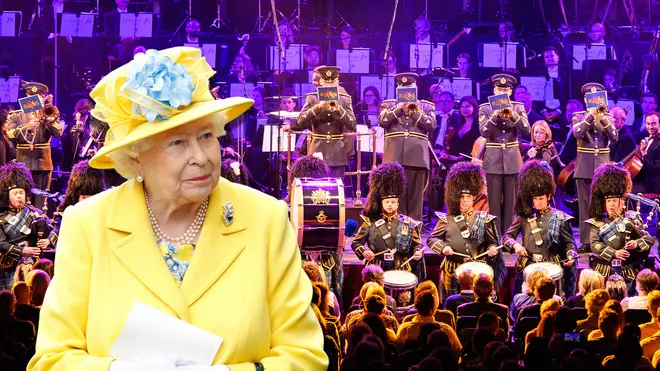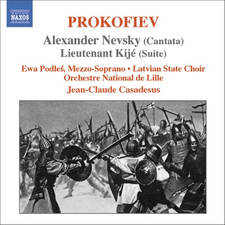15 of the best classical music pieces for The Queen’s Platinum Jubilee
27 May 2022, 17:00

As the celebrations for Her Majesty The Queen’s Platinum Jubilee begin, here are 15 brilliant pieces of music to accompany your plans.
Whether your plans include a trip to the Derby, celebrating at a street party, a visit to Buckingham Palace, or something a bit different over the Jubilee Weekend, here are 15 pieces of classical music to help get your celebrations off to a brilliant start.
From Elgar and Walton, to Parry and more, there’s plenty of jubilant music, with many a royal connection.
-
Holst – I Vow to Thee My Country
There are few hymns more stirring than this. You might recognise the sweeping melody from ‘Jupiter’, the fourth movement in Holst’s orchestral suite The Planets. Holst named the melody ‘Thaxted’ after the small Essex village where he lived for most of his life and, in 1921, set a poem by Sir Cecil Spring Rice to its tune.

Gustav Holst: "Jupiter" aus "Die Planeten" op. 32 mit Andrew Manze | NDR Radiophilharmonie
-
Handel – Zadok the Priest
Originally composed for the coronation of King George II of England in 1727, Zadok the Priest has been sung at every coronation ceremony since. Written for orchestra and large chorus, a short orchestral section builds to a full force choral declaration, complete with brass fanfare and beating timpani. A jubilant musical celebration, fit for any coronation or jubilee.
Read more: What are the words to ‘Zadok The Priest’?

Handel's Zadok the Priest – Royal Liverpool Philharmonic Orchestra
-
Elgar – Land of Hope and Glory
With music taken from the first of Elgar’s Pomp and Circumstance Marches, ‘Land of Hope and Glory’ is a setting of lyrics by Arthur Christopher Benson. It was King Edward VII who first had the idea, saying to Elgar that he thought the melody would suit a set of lyrics well. Later that year, when Elgar was asked to write music for the King’s coronation, he used the very same melody as the chorus alongside Benson’s words.
Read more: What are the lyrics to ‘Land of Hope and Glory’?

Elgar: Land of Hope and Glory - Arr. from "Pomp and Circumstance" March No. 1
-
Handel – Water Music
How many composers can say their music has been premiered on a barge? Well, it’s at least one. Handel’s Water Music suite received its first performance on 17 July 1717, floating along the River Thames at the request of King George I. The King and his company boarded one boat, and around 50 musicians crammed themselves onto another. King George was apparently so impressed by Handel’s music that he requested the piece be played again and again on repeat, from Whitehall to Chelsea and back again.

Handel: Water Music Suite in D Major, HWV 349 - Hornpipe
-
Elgar – Nimrod
In February 1899, Elgar completed his Enigma Variations, 14 musical profiles each dedicated to a significant person (or pet!) in his life. The ninth, nicknamed ‘Nimrod’, is dedicated to the music editor Augustus J. Jaeger. So the story goes, Jaeger had visited Elgar during a bout of depression and urged him not to quit, singing a theme from Beethoven’s ‘Pathétique’ piano sonata. So, when Elgar put pen to paper, he hid a reference to the sonata at the very beginning of the stately theme.

Elgar's Nimrod – Carducci Quartet
-
Parry – Jerusalem
Using the text from an 1804 poem by William Blake, Hubert Parry’s Jerusalem was written in 1916 and re-orchestrated by Elgar six years later in homage to the elder composer, who had died in 1918. It is this version which is best known today, having been adopted as a hymn. It was sung at the wedding of Prince William and Catherine Middleton, and was even once suggested as an alternative national anthem to ‘God Save the Queen’.
Read more: What are the lyrics to the hymn ‘Jerusalem’, and is it England’s national anthem?

Jerusalem, from St Paul's Cathedral in London
-
Walton – Crown Imperial
Written for the coronation of King George VI in 1937, William Walton’s aptly named Crown Imperial is a stately march that makes full jubilant use of the percussion, brass and high wind sections. When commissioned, Walton’s brief was to write something in the style of Elgar’s Pomp and Circumstance (Elgar being unavailable due to his death a few years earlier). Since its premiere, Crown Imperial has been performed at various state occasions in Westminster Abbey, including the coronation of Queen Elizabeth II.
Read more: What music was played at Her Majesty The Queen’s coronation?

Crown Imperial - Coronation March (1986 Remastered Version)
-
Coleridge-Taylor – African Suite
Samuel Coleridge-Taylor was one of the finest British composers of his time, having studied at the Royal College of Music under Charles Villiers Stanford, who would later conduct the premiere of his most famous piece, Hiawatha’s Wedding Feast. The fourth movement from his African Suite, ‘Danse Negre’, is a chirpy and jolly piece for orchestra. Its brass fanfares, rhythmic chimes and sublime strings make it the perfect pick for jubilee celebrations.

African Suite: IV. Danse Negre
-
Coates – Dambusters March
Eric Coates’ Dambusters March is known as a film score, but that wasn’t what it was originally composed for. According to Coates’ son, Austin, his father had actually written the march in the style of Elgar before being approached by the film’s producers. As luck would have it, Coates’ march could not be better suited, and it remains a firm favourite at flypasts to this day.

The Dambusters March
-
Handel – Arrival of the Queen of Sheba
Taken from Act 3 of Handel’s oratorio, Solomon, ‘Arrival of the Queen of Sheba’ is a piece for two oboes and strings that is popular at processions, wedding ceremonies, and was notably used during the opening ceremony of the London 2012 Olympic Games as Daniel Craig (as James Bond) met The Queen at Buckingham Palace.

Handel: Solomon HWV 67 / Act 3 - The Arrival Of The Queen Of Sheba
-
Weir – Love Bade Me Welcome
Judith Weir provides a moment of calm and stillness in an otherwise lively affair. Appointed Master of the Queen’s Music in 2014, she was the first woman to hold the position, having been the third person to receive The Queen’s Medal for Music, in 2007.
Read more: Her Majesty Queen Elizabeth II’s contribution to classical music

Love Bade Me Welcome - Judith Weir (Sydney Chamber Choir)
-
Clarke – Trumpet Voluntary
Originally thought to be composed by Henry Purcell, Trumpet Voluntary was written in 1700 by Jeremiah Clarke, who was the first organist appointed to St Paul’s Cathedral after it had been rebuilt following the Great Fire of London. The piece was supposedly written for Queen Anne’s husband, the Prince of Denmark, and today is popular as wedding music, particularly since featuring at the nuptials of Prince Charles and Lady Diana Spencer in 1981.

Trumpet Voluntary
-
Handel – Music for the Royal Fireworks
Handel’s Music for the Royal Fireworks was written in 1749 at the request of King George II, to accompany a firework display in London’s Green Park. The original work is for wind and percussion only, as King George had requested for there to be “no fiddles” – something Handel wasn’t particularly happy about. He re-scored the suite the following month, for a performance at the Foundling Hospital.

Handel: Music for the Royal Fireworks: Suite HWV 351 - 1. Ouverture
-
Hewitt Jones – In Our Service
Commissioned by The Royal School of Church Music, British composer Thomas Hewitt Jones has composed a new choral piece to celebrate The Queen’s Platinum Jubilee. The moving anthem is designed to be sung far and wide by professional and amateur singers alike, with lyrics that are inspired by The Queen’s royal speeches over the last 70 years.

'In Our Service' by Thomas Hewitt Jones – Royal Holloway Choir – Platinum Jubilee Anthem
-
Handel – Hallelujah Chorus
A celebration as jubilant as this would hardly be complete without one of the most celebratory pieces of music ever written. The ‘Hallelujah Chorus’ from Handel’s oratorio Messiah is a rousing choral masterpiece, with a centuries-old tradition of audiences standing when they hear it, apparently after King George II was moved to his feet at its London premiere.
Read more: We can’t stop watching these hilarious ‘silent monks’ singing the Hallelujah Chorus

Royal Choral Society: 'Hallelujah Chorus' from Handel's Messiah









































